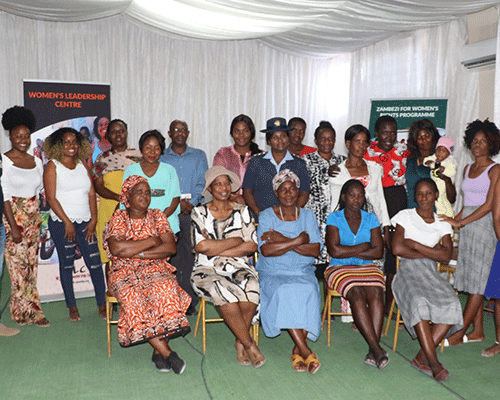Kinney Ndopu
KATIMA MULILO – The Zambezi for Women’s Rights Programme (ZWR) under the Zambezi Women’s Leadership Centre gathered at the Chenais’ African restaurant in Katima Mulilo to discuss how community leaders and stakeholders can engage and form a joint action plan on how they can work together to protect the rights, health and well-being of girls and women in the Zambezi region.
Women recruited to join the ZWR from Bukalo, Ngoma, Choi, Sangwali, Sibinda, Luhonono and Samudono shared views regarding their suffering and struggles caused by the people with authority.
The aim of the meeting was to help with the prevention of harmful cultural practices that expose girls and women to many forms of violence as well as HIV and bring women’s rights into reality, said Liz Frank, a feminist activist at the ZWR.
‘‘Zambezi region is known to have the highest HIV rate in the whole country, so we decided to come up with this programme and include women from different villages, as they all agree and have suffered enough,” said Frank.
Complaints from the participants were pointed toward the Ministry of Gender Equality, Poverty Eradication and Social Welfare and the Ministry of Home Affairs, Immigration, Safety and Security, including the police department. They contribute to the failure of developing feminism, practices of child marriage, civil marriage and the vulnerability of children.
According to a woman, who only gave her name as Christina from Bukalo, child marriage is becoming an issue in Zambezi region, and people with authority turn a blind eye and act as if it is legal for children (girls) under the age of 18 to marry an older man.
Peggy Tutalife from Choi continued saying leaders take advantage of citizens because of their high positions.
‘‘Feeling powerless is a miserable experience. Given the choice, everyone would opt for more, rather than less power. It is written in the book of law that no one is allowed to rule over someone just because they are rich or have more authority than the other because we all have rights.
It is, however, surprising that the same people who set those rights are the ones violating them, she said.
Munukayumbwa Mwiya, the programme officer at the Women’s Leadership Centre in the Zambezi region stated the programme aims to equip and empower women with information to help protect the rights, health and wellbeing of girls and women in the region.
Many problems arise from the fact that some women and children are unaware of their rights – and even if they are aware, they do not know where to go or who to report to when their rights are violated, she said.
* Ndopu is an Intern at MICT Zambezi regional office.



